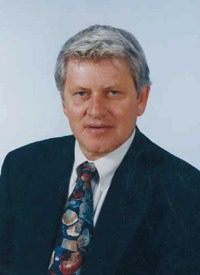
Here’s a short multiple-choice quiz. Who said the following? “Were we directed from Washington when to sow, and when to reap, we should soon want bread.”
a. Fidel Castro, warning Cubans to resist the power of their capitalist neighbor.
b. Thomas Jefferson, warning about the inherent inefficiencies of centralized power.
It was Jefferson.
He also said, “A wise and frugal government, which shall restrain men from injuring one another, which shall leave men otherwise free to regulate their own pursuits of industry and improvement, and shall not take from the mouth of labor the bread it has earned — this is the sum of good government.”
Castro, of course, went in the other direction, putting every pursuit of industry and improvement under his thumb, and the Cuban people ended up wanting not only bread but also fish, meat, cars, air conditioning, clothing, and housing.
In its December 2008 report, “The Cuban revolution at 50: Heroic myth and prosaic failure,” The Economist magazine described the conditions in Cuba the year before Castro shot his way to power.
“In 1958, Cuba was among the five most developed countries in Latin America: life expectancy was close to that in the United States, and there were more doctors per head than in Britain or France,” reported The Economist. “Havana boasted 135 cinemas in 1958 — more than New York City. Today, only a score remain open, although the city’s population has doubled.” And those few remaining screens don’t show what Big Brother doesn’t want the serfs to see.
The Economist summed up the economic and political results of Castro’s success in driving more than a million of his country’s more entrepreneurial people to escape to the United States: “Mr. Castro’s Cuba is a sad place. Although the population is now mainly black or mulatto, its rulers form a mainly white gerontocracy. The failure of collective farming means that it imports up to 80 percent of its food. The health and education systems struggle to maintain standards. Inequalities have risen.”
Additionally, there are special jail cells for “prisoners of conscience,” for those who insufficiently cheered the regime. In a place that’s defined as a state of morally superior egalitarianism, it’s not wise to talk about the scarcity of freedom or the lack of eggs.
National Public Radio, summing up five decades of Castro keeping a lid on individualism and capitalism, reported that government stores in Cuba “regularly run out of meat, eggs and cooking oil.” Those shortages in supply exist even with the government keeping demand artificially low through ration books that limit the amount of consumption per capita.
After half a century of socialist development and decades of Soviet assistance, the government-dictated allotments in Cuba for coffee and vegetable oil, respectively, ran around four ounces and two cups — per month, per capita. The fish allotment? Ten ounces per month per person in a nation surrounded by some of the world’s best fishing waters.
One thing worked in Cuba — Castro’s campaign of misinformation. “Castro’s lasting success has been as a masterful propagandist,” stated The Economist. “He has exploited the cult of Che in particular. Guevara’s myth — of the romantic rebel, not the murderous, militaristic Marxist of real life.”
The romantic version of Guevara shows up regularly on the t-shirts of poly sci majors, those who are big on hope and change and clueless about economics and business.
Some enterprising entrepreneur should update the t-shirts: The shirt could feature both Fidel and Che, looking admiringly at each other, 1959, and underneath could be this old Texan putdown, about those who can’t deliver — “All hat, no cattle.”
Ralph R. Reiland is an associate professor of economics at Robert Morris University in Pittsburgh.


